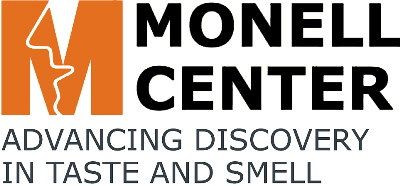Newswise — PHILADELPHIA (December 18, 2012) --The Monell Center announces a gift of $1million from food chemistry consultant Louise Slade, Ph.D. The funds will support Monell’s fundamental research program on the mechanisms of human salt detection and perception.
“We are deeply grateful to Louise for this important gift,” said Monell Director Gary K. Beauchamp, Ph.D. “The development of practical and successful methods to reduce salt intake likely will not be possible without a more thorough understanding of exactly how humans detect salty taste and the factors that modify salty taste acceptance. Louise’s support underscores both her appreciation for the value of basic scientific research and her deep-rooted interest in human nutritional health and quality of life.”
Excessive dietary salt intake is believed by many to contribute to the development and maintenance of high blood pressure. It has been estimated that reducing sodium intakes could prevent more than 100,000 deaths annually and save billions in medical costs in the United States alone.
To date, the call to reduce salt intake has not been successful, in part because humans like the taste of salt. However, the basic mechanisms underlying detection and acceptance of salty taste still remain incompletely understood.
“Monell’s broad collective approach to science produces knowledge that can benefit lives on a daily basis,” said Slade. “Moreover, the basic scientists at Monell communicate directly with the food industry, which is essential if industry is to successfully reduce the amount of sodium in processed food, by far the greatest source of sodium in our diets.”
The $1 million gift will underwrite the expansion of Monell’s ongoing interdisciplinary research program on the mechanisms and functions of salty taste. World-renowned experts in molecular biology, human sensory perception, developmental psychobiology, and other fields work together with the goal of achieving a complete understanding of this complex and elusive topic.
Originally trained as a protein chemist, Slade retired in 2006 after an illustrious 27-year career in the food industry. Author of over 240 papers and holding 35 patents for novel food ingredients, products and processes, she now is a principal of Food Polymer Science Consultancy. With a passionate desire to contribute to the science of flavor, she currently holds an appointment as an Affiliated Scientist at Monell and serves on the Center’s International Advisory Council.
“My overarching question is: how can we make food more healthy? This is why it is so important for us to understand how salty taste works,” she said. “And no place is better able than the Monell Center to address this vital problem from a scientific perspective.”
This is not Slade’s first major gift to the Center. In 2008, she also donated $1million. Under her direction, a major portion of the funds was used to purchase a multi-photon microscope, a piece of equipment needed for Monell scientists to advance their work on taste receptor function in living cells.
More recently, Slade provided funds to support the successful recruitment of a promising junior faculty member who links molecular biology with olfactory perception.
“With these very significant gifts, Louise has handed us needed tools that enable Monell’s basic chemosensory research to advance health and well-being,” said Beauchamp.
The Monell Chemical Senses Center is an independent nonprofit basic research institute based in Philadelphia, Pennsylvania. Monell advances scientific understanding of the mechanisms and functions of taste and smell to benefit human health and well-being. Using an interdisciplinary approach, scientists collaborate in the programmatic areas of sensation and perception; neuroscience and molecular biology; environmental and occupational health; nutrition and appetite; health and well-being; development, aging and regeneration; and chemical ecology and communication. For more information about Monell, visit www.monell.org.
